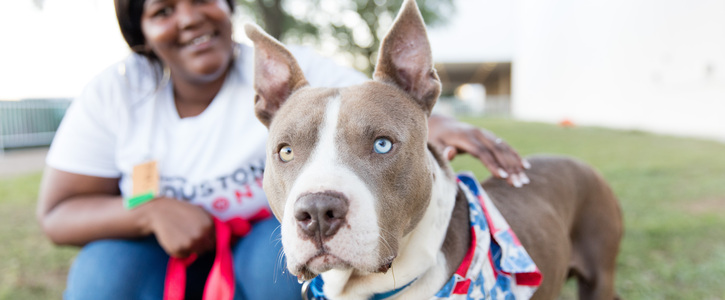100 signatures reached
To: Larry Deiter, Director of Insurance
End Breed-Restrictive Insurance Practices in South Dakota

If your dog is well-behaved, there is no reason that an insurance company should arbitrarily deny or cancel your homeowner's or renter's coverage.
Currently, responsible pet owners of particular breeds or mixes of dogs are charged extra premiums, denied insurance coverage, or can have their policy canceled by their insurance company. These arbitrary decisions are all based upon what breed the dog APPEARS to be, not the dog's behavior. The practice of using breed as a predictor of risk is unsupported by reliable data.
We ask Larry Deiter to issue regulations to stop breed restrictions by insurance companies operating in South Dakota. Consumers should not have to be underinsured, uninsured, or be forced to give up their dogs to have affordable renters or homeowner’s insurance.
Currently, responsible pet owners of particular breeds or mixes of dogs are charged extra premiums, denied insurance coverage, or can have their policy canceled by their insurance company. These arbitrary decisions are all based upon what breed the dog APPEARS to be, not the dog's behavior. The practice of using breed as a predictor of risk is unsupported by reliable data.
We ask Larry Deiter to issue regulations to stop breed restrictions by insurance companies operating in South Dakota. Consumers should not have to be underinsured, uninsured, or be forced to give up their dogs to have affordable renters or homeowner’s insurance.
Why is this important?
There is a wide range of dogs falling within the category of “risk” breeds according to some insurance companies including Boxers, Giant Schnauzers, German Shepherds, Chows, Great Danes, Alaskan Malamutes, American Staffordshire Terriers, Akitas, Cane Corsos, American Bulldogs, Belgian Malinois, Keeshonds, Rhodesian Ridgebacks, Ovtcharkas, Siberian Huskies, Dobermans, Pit Bulls, Dalmatians, Rottweilers, Australian Cattle dogs and more.
The National Association of Insurance Commissioners [NAIC] should protect pet-owning consumers. Insurance companies should focus on the behavior of the dog. Dogs with aggressive behavior should not be protected by any moratorium.
This is important because dogs are viewed by the vast majority of Americans as part of the family, and the ability for people to keep families together should be protected. Breed-restrictive insurance practices can force responsible pet owners to give up their pets and increase the number of pets in shelters.
The likelihood a dog will bite is based on many factors such as socialization of the dog, obedience training, supervision provided by the owner, and how the victim interacts with the dog. It has not been proven by scientific evidence that aggressive behavior is present in any particular breed of dog. Insurance companies that want to reduce risk should focus solely on behavior of the dog and the behavior of the owner.
The National Association of Insurance Commissioners [NAIC] should protect pet-owning consumers. Insurance companies should focus on the behavior of the dog. Dogs with aggressive behavior should not be protected by any moratorium.
This is important because dogs are viewed by the vast majority of Americans as part of the family, and the ability for people to keep families together should be protected. Breed-restrictive insurance practices can force responsible pet owners to give up their pets and increase the number of pets in shelters.
The likelihood a dog will bite is based on many factors such as socialization of the dog, obedience training, supervision provided by the owner, and how the victim interacts with the dog. It has not been proven by scientific evidence that aggressive behavior is present in any particular breed of dog. Insurance companies that want to reduce risk should focus solely on behavior of the dog and the behavior of the owner.

